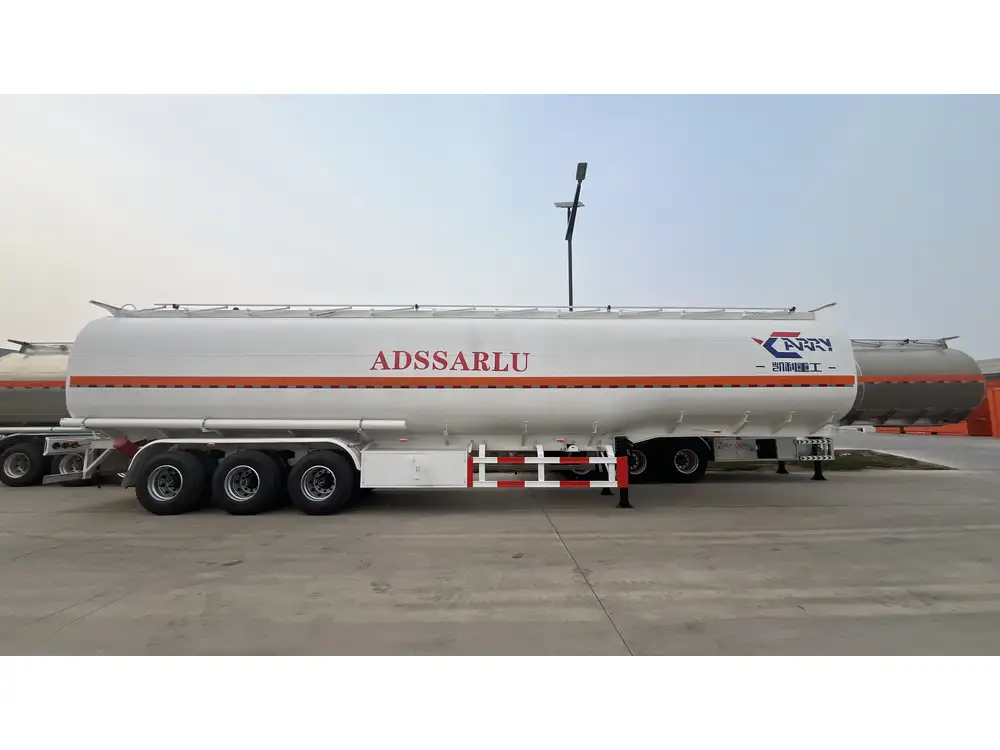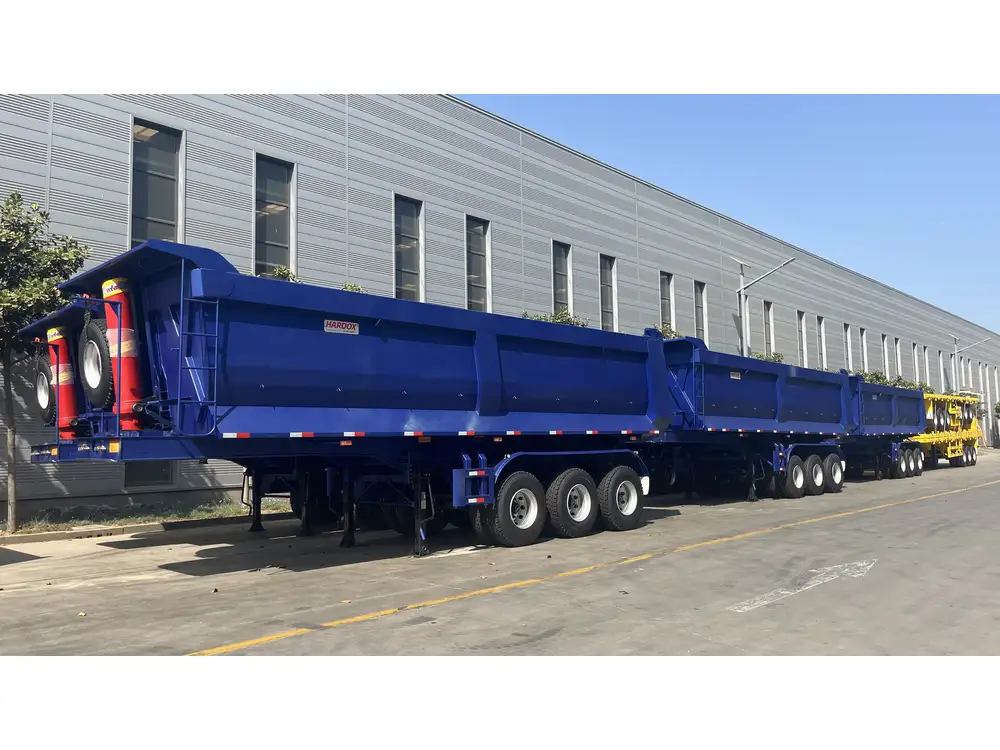When it comes to logistics and transportation, understanding the tank capacity of a tractor trailer is crucial. Whether you’re in the trucking industry, running a transportation business, or just curious about how much fuel these vehicles can hold, you’ve arrived at the right place. This comprehensive guide will delve into the various aspects that determine the capacity of a tractor trailer.
What Is a Tractor Trailer?
A tractor trailer, often referred to as an articulated vehicle, consists of a tractor unit (the front part with the engine) and a semi-trailer (the rear part that carries cargo). These vehicles are primarily designed for transporting goods over long distances, making them a staple in freight transport.
Key Components of a Tractor Trailer:
| Component | Description |
|---|---|
| Tractor Unit | The front part that pulls the trailer, containing the cab and engine. |
| Semi-Trailer | The rear part, which can vary in size, and capacity and is often used to carry freight. |
| Tandem Axles | Provides support and stability, typically seen on the trailer allowing for better weight distribution. |
| Fifth Wheel | The coupling device between the tractor and the trailer, permitting the trailer to pivot. |

Fuel Capacity of Tractor Trailers
Average Fuel Capacity
On average, a standard tractor trailer holds approximately 100 to 300 gallons of fuel. The range varies based on several factors, including:
- Type of Trailer: Different models and brands can have varying capacities.
- Number of Tanks: Some tractors are equipped with single fuel tanks, whereas others have dual tanks to maximize range.
- Purpose of the Vehicle: Specialized trailers may have different requirements.
Breakdown of Fuel Tank Sizes
| Tank Type | Average Capacity (Gallons) |
|---|---|
| Single Tank | 100-150 |
| Dual Tanks | 200-300 |
| Specialized Tanks | 300+ |

Factors Affecting Fuel Capacity
1. Design Variations
Different manufacturers have unique designs and specifications that can affect the overall capacity. Some trailers are engineered specifically for long hauls and thus come with larger tanks.
2. Weight Limits (GVWR)
Each tractor trailer is designed with a Gross Vehicle Weight Rating (GVWR). This rating defines the maximum total weight of the vehicle, including its cargo. To optimize performance while adhering to regulatory standards, the fuel tank size is often adjusted accordingly.

3. Type of Cargo
The nature of the cargo being transported can influence the amount of fuel required. Heavier loads may necessitate larger fuel tanks for longer trips to reduce the frequency of refueling.
4. Emission Regulations
Regulations surrounding emissions can also impact the design and size of fuel tanks. Stricter regulations could encourage manufacturers to focus on fuel efficiency, potentially altering tank sizes to maximize eco-friendliness.
Special Considerations

Fuel Efficiency
While understanding how many gallons a tractor trailer can hold is important, recognizing fuel efficiency is equally critical. Factors that influence fuel efficiency include:
- Aerodynamics
- Tire Pressure
- Engine Type
- Load Weight
- Driving Habits
Higher efficiency could mean more miles per gallon, enabling longer trips with less fuel.
Tank Maintenance
Regular maintenance of the fuel tank is paramount. Here are key practices to consider:
- Check for Leaks: Inspect regularly to avoid fuel wastage.
- Cleanliness: Ensure tanks are clean; contaminants can damage the engine.
- Corrosion Checks: Periodically check for rust or corrosion that could compromise integrity.
Fuel Types
Tractor trailers typically run on either diesel or gasoline, with diesel being the more common choice due to its energy density and efficiency.
| Fuel Type | Benefits |
|---|---|
| Diesel | Better fuel economy, high energy content. |
| Gasoline | Available in more locations but less efficient. |

The Impact of Engine Technology
With the rapid evolution of engine technology, many newer models have enhanced fuel efficiency that directly relates to their fuel capacities. Innovative technologies such as
- Turbocharging
- Direct Fuel Injection
- Hybrid Engines
are all sectors where adjustments can lead to more sustainable models with varied holding capacities.
Summary of Fuel Capacity by Truck Class
| Truck Class | Average Fuel Capacity (Gallons) |
|---|---|
| Class 8 | 150-300 |
| Class 7 | 100-200 |
| Class 6 | 75-150 |
Conclusion
Understanding the fuel capacity of a tractor trailer is vital for efficient transportation management. With an average range of 100 to 300 gallons, the variety in tank sizes is influenced by several factors including design, type of cargo, and emission regulations.
By regularly maintaining fuel tanks and embracing modern engine technology, manufacturers and operators can optimize both the performance and efficiency of these vehicles. Always remember that choosing the right fuel type not only affects operational costs but also contributes to greater environmental responsibility.
In a world where logistics is key to success, keeping these factors in mind will ensure that operations run smoothly and profitably. We hope this comprehensive guide has illuminated the critical aspects surrounding tractor trailer fuel capacity and supported you in your quest for knowledge. For more insights, feel free to delve into other related topics or consult our ongoing articles as we expand your understanding of the transportation landscape.



